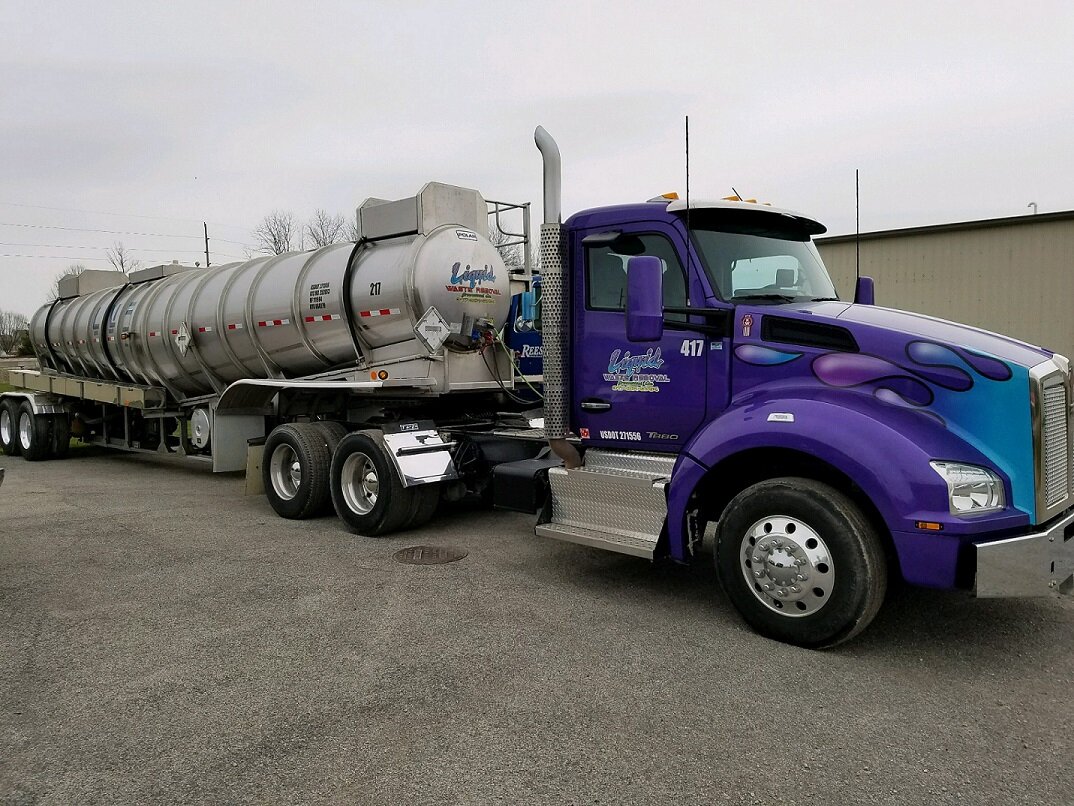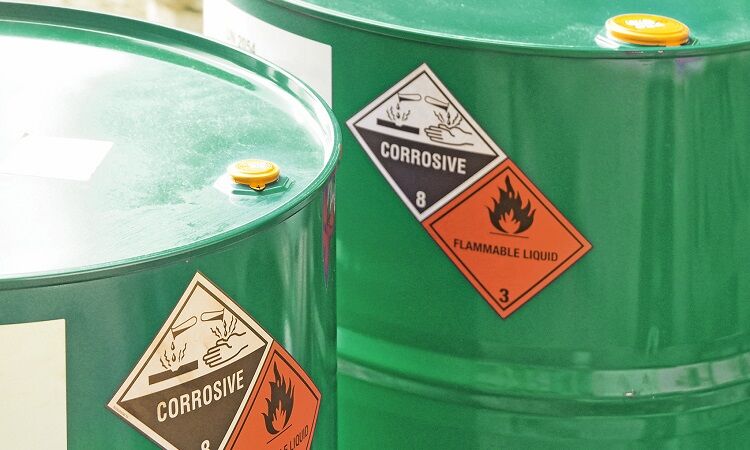Industrial Wastewater Treatment: Personalized Solutions for Complicated Wastewater Challenges
Wiki Article
Recognizing the Comprehensive Refine of Fluid Garbage Disposal: Ideal Practices and Environmental Impact Factors To Consider
The management of fluid waste disposal is a diverse issue that needs an extensive understanding of numerous finest methods and their associated environmental impacts. From the kinds of liquid waste produced to the techniques employed for collection, therapy, and last disposal, each action plays a critical role in protecting ecological communities and public wellness.Kinds of Liquid Waste
Understanding the different kinds of fluid waste is necessary for efficient monitoring and disposal methods. Liquid waste can be broadly categorized into a number of types, each calling for special handling and therapy methods.Industrial liquid waste often consists of harmful products, including hefty metals, solvents, and chemicals, generated during manufacturing processes. These wastes demand stringent regulatory conformity to protect human health and wellness and the environment. Domestic fluid waste primarily refers to wastewater created from households, consisting of sewage and greywater, which, although much less toxic, can still position considerable risks if incorrectly managed.
Agricultural fluid waste, including runoff from farms, typically consists of fertilizers and pesticides that can cause environmental degradation otherwise dealt with effectively. Medical liquid waste, created from health care facilities, includes infected liquids such as physical liquids and chemicals, requiring specialized disposal approaches to prevent infection and environmental contamination.
Last but not least, oil and grease waste, generally produced by dining establishments and auto sectors, can trigger extreme clogs in drain systems otherwise taken care of appropriately. Understanding these classifications promotes targeted approaches for treatment, conformity with guidelines, and effective disposal methods, ultimately advertising ecological sustainability and public health and wellness safety and security.

Collection Techniques
Reliable collection methods are crucial for the correct management of fluid waste, making certain that it is gathered safely and successfully before treatment or disposal. Various techniques are used depending on the type of fluid waste created, the quantity, and the certain features of the waste.One typical technique is making use of committed collection storage tanks or sumps, which are developed to catch liquid waste at the resource. These systems frequently integrate pumps that promote the transfer of waste to bigger storage containers or treatment facilities. In addition, mobile collection devices furnished with vacuum cleaner modern technology are used in scenarios where waste is created periodically or in hard-to-reach places.
For commercial settings, closed-loop systems can effectively reduce leakages and spills, allowing for the healing and reuse of liquid waste. It is also vital to educate workers on correct collection methods to minimize dangers associated with dangerous substances.
Furthermore, applying normal upkeep timetables for collection equipment ensures ideal performance and safety. The combination of advanced surveillance systems can enhance collection efficiency by supplying real-time information on waste levels and possible risks. Generally, effective collection approaches are fundamental to lasting fluid waste administration methods.
Therapy Procedures
Treatment processes play an important duty in the administration of liquid waste, transforming potentially hazardous products right into multiple-use sources or secure effluents - liquid waste disposal. These procedures can be broadly classified into physical, chemical, and biological techniques, each tailored to address certain contaminants present in the waste streamPhysical therapy approaches, such as sedimentation and purification, job by removing put on hold solids and particle issue. These techniques are often the primary step in the treatment chain, properly lowering the tons on subsequent procedures. Chemical treatments involve the use of reagents to counteract harmful substances, speed up heavy steels, or oxidize natural pollutants, consequently enhancing the safety and security of the effluent.
Organic therapy procedures, consisting of activated sludge systems and anaerobic digestion, exploit on the all-natural capacities of bacteria to deteriorate organic matter. These approaches are especially reliable for wastewater having naturally degradable toxins. Advanced therapy innovations, such as membrane layer filtration and progressed oxidation procedures, are significantly utilized to achieve higher levels of purification.
Integrating a mix of these therapy methods not only ensures conformity with governing requirements yet likewise advertises ecological sustainability by recouping valuable resources from liquid waste.
Disposal Options
How can organizations make certain the responsible and safe disposal of fluid waste? Reliable disposal choices are critical for guarding public health and wellness and the atmosphere. The main approaches include land incineration, therapy, and disposal followed by discharge right into local wastewater systems.Land disposal involves the mindful control of fluid waste in marked landfills, guaranteeing that it does not leach into bordering soil or water. Incineration, on the various other hand, subjects liquid waste to high temperature levels, transforming it right into ash and gases, which call for correct purification to decrease exhausts. This method is appropriate for harmful wastes that can not be treated via conventional methods.
In situations where fluid waste can be dealt with, organizations might select organic or chemical therapy processes to reduce the effects of damaging elements prior to releasing the dealt with effluent into municipal systems. This route usually aligns with regulative needs, guaranteeing that the effluent satisfies safety standards.
Eventually, organizations should carry out complete analyses of each disposal alternative to identify its viability, considering factors such as waste structure, regulative conformity, and prospective threats to health and wellness and the atmosphere. By selecting appropriate disposal methods, businesses can contribute to a liable waste administration technique.
Environmental Effect
The environmental influence of liquid garbage disposal is a crucial consideration for companies looking for to minimize their environmental footprint. Inappropriate disposal methods can cause considerable contamination of water resources, soil degradation, and adverse impacts on neighborhood ecosystems. For circumstances, unsafe liquids can leach into groundwater, presenting risks to alcohol consumption water products and aquatic life. Furthermore, the discharge of untreated or inadequately dealt with waste right into surface area waters can result in eutrophication, leading to oxygen deficiency and the succeeding death of fish and various other organisms.
To alleviate these influences, organizations should take on ideal practices such as carrying out extensive waste treatment processes, promoting recycling and reuse, and sticking to regulative criteria. By taking a proactive strategy to fluid waste management, entities can considerably reduce their ecological impact while supporting sustainable advancement goals. Inevitably, a comprehensive understanding of the ecological influences connected with liquid waste disposal is important for notified decision-making and liable stewardship of natural deposits.
Final Thought
Efficient monitoring of liquid waste is essential for protecting ecological stability and public health and wellness. Inevitably, an extensive understanding of liquid waste disposal not only alleviates ecological impacts however additionally fosters a commitment to accountable resource management and environmental stewardship.The administration of fluid waste disposal is a multifaceted problem that requires a comprehensive understanding of various best methods and their connected environmental effects. From the types of fluid waste created to the methods employed for collection, therapy, and last disposal, each step plays an essential duty in securing ecosystems and public health.The ecological influence of fluid waste disposal is an essential factor to consider for organizations looking for to reduce their ecological impact. Ultimately, a thorough understanding of the ecological impacts associated with fluid waste disposal is vital for educated decision-making and responsible stewardship of natural sources.
liquid waste removal melbourne Eventually, a comprehensive understanding of fluid waste disposal not just reduces ecological impacts but additionally cultivates a dedication to responsible resource monitoring and ecological stewardship.
Report this wiki page